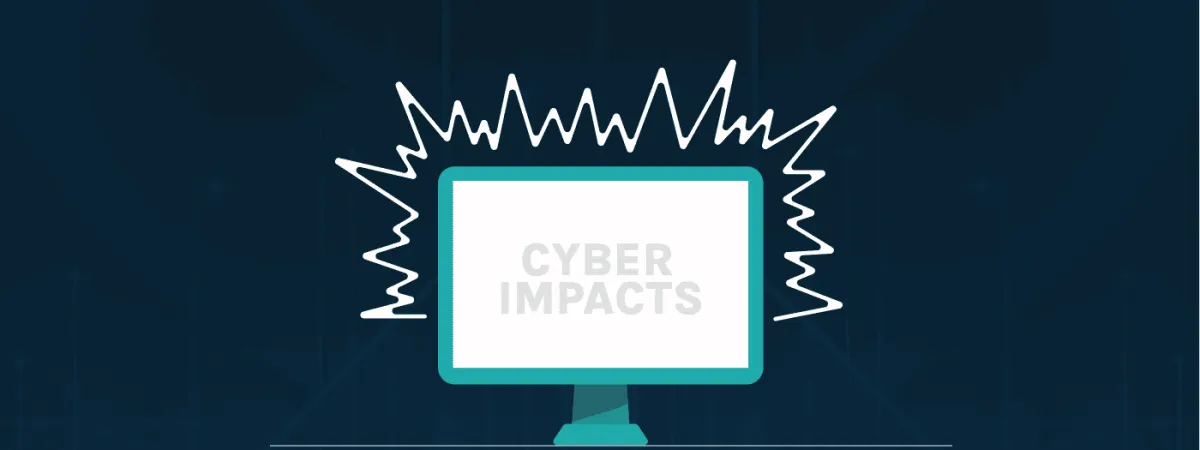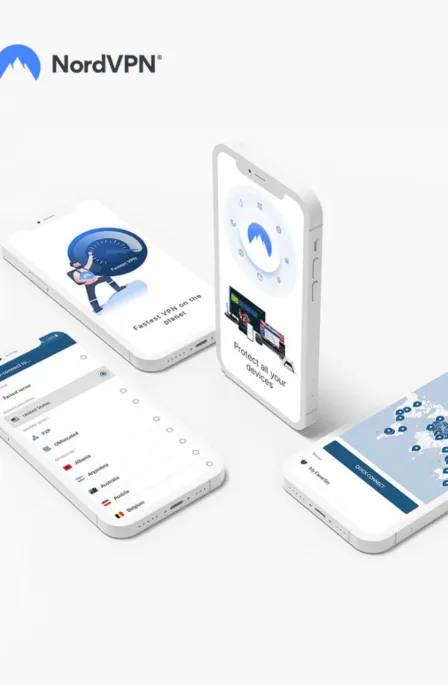AI is undoubtedly the hot, reasonably new thing in the market. Given its significant breakthrough, it has a massive impact on cybersecurity. It helps us implement robust techniques to protect ourselves from cyberattacks. But, at the same time, hackers can also use Artificial Intelligence against us. For example, they can use it to collect data in just a few minutes.
Note: To protect yourself from the latest and advanced cyberattacks, we recommend using a reliable VPN service like NordVPN and an antivirus to stay protected from viruses and malware attacks.
AI has been the core fantasy of many technologists and tech geeks. Various works have been done to advance it. People have portrayed various aspects of AI with sky-high expectations. The fuel behind its development is the hope that AI will create a world that is something out of a sci-fi movie.
However, the main question here is whether AI would be a revolutionary breakthrough in the technological world or if it would be a nightmare version of Terminator’s “judgment day.”
In this article, we have grasped that idea but have given up insight into AI and its impacts on cybersecurity.
What is artificial intelligence?
Artificial intelligence refers to the simulations carried out by computers or technological devices to mimic human intelligence. It is the work that allows computers to work on paths that typically require human intelligence, such as visual perception, speech recognition, decision-making, etc.
In other words, it mimics human cognition using computers. The work includes learning, reasoning, and self-correction.
You can put it up as computers trying to be more like humans! Much like Sonny in iRobot!
Types of artificial intelligence
Artificial intelligence comprises two distinct main branches, which are as follows:
Weak artificial intelligence
This type is also termed narrow AI. It works on intelligence systems that are developed and designed for specific purposes.
They mimic human intelligence and work on the set of tasks that are fed to them. One such example is Apple’s Siri.
Strong artificial intelligence
General artificial intelligence is another name for artificial solid intelligence. The system works in the same way human cognition works.
The artificial solid intelligence developed system can learn and grow. This means that a task that is unfamiliar can be solved through self-cognition. The best example of this one is ChatGPT.
Role AI would play in cybersecurity
AI has already stepped up the security game. Devices like biometric scanners contribute to general security, and the world is indeed becoming somewhat secure.
The technology has certainly made a vast number of contributions to the world. However, as the world has revolutionized technologically, cybersecurity threats are also increasing.
As AI is still somewhat new in the market, most companies consider it a double-edged sword. People are still somewhat skeptical about its usage and authenticity.
It has a profound impact on cybersecurity. However, the critical focus here is whether the effect will be positive or negative.
AI and cybersecurity – The positive aspect
With rapid advancements, AI has emerged as a powerful tool against cybersecurity. As it can analyze large amounts of data, it can be used to find required derivations and patterns. It can identify and work against malicious content such as:
- DNS infiltration
- Credentials misuse
- Identity theft
- Social engineering attacks
Furthermore, AI algorithms are designed to be much more complex and can be applied to mimic network and user behaviors. We can utilize it against highly skilled hackers as AI can work to step up the security of the defenders.
Apart from that, AI also plays a significant role in retrospection and prognostication. It is when a relatively new attack or vulnerability is introduced to a system. Now reverting to old logs to look for a defense mechanism is tedious if done manually.
Artificial intelligence, however, advocates for change. It can quickly complete manual tasks that take up a lot of time in a few minutes. Also, if the attack is new to the system, AI is smart enough to develop a new defense technique.
AI and cybersecurity – The negative perspective
AI is a great invention for humans. However, despite its positive aspects, there is a good chance that it can also be used against us.
First, AI can be used to devise new defensive strategies against attacks. In the same way, it can also devise new malware or viruses.
As hackers learn and gain a firmer grasp of this technology, they can surely use it to engineer more powerful attacks. AI algorithms are used to create a defense against malware and viruses; they can also be used to create even more dangerous versions of attacks.
Artificial intelligence also has the potential to actively contribute to social engineering attacks. Finding victims for a phishing or spear-phishing attack has become far easier than it used to be.
Previously, a social engineer spent days and weeks planning and gathering information on the target. Now, due to AI’s various tools, information collection is straightforward.
At first, the latest technology can be used to analyze massive amounts of data to filter out the perfect victim for an attack. Furthermore, after selecting victims, AI can craft emails and sites that can effectively carry out the attack.
AI is undoubtedly the hot, reasonably new thing in the market. Given its significant breakthrough, it has massive impacts on all aspects of our lives.
However, as everything has pros and cons, it is better to let the technology be developed. As far as it is in the process is concerned, it is better to keep your hands together and hope it doesn’t fall into the wrong hands.
Share this article
About the Author
Related Posts

How to Avoid Gambling Restrictions in 2024
KEY TAKEAWAYS Gambling is prohibited in multiple countries as it is addictive, and many people go ba...

20 Best Penetration Testing Tools For Security Professionals
KEY TAKEAWAYS If you’re in a hurry, then have a look at the list of 20 best penetration testin...

The Role of Developer Security in Software Development
KEY TAKEAWAYS The revolution of DevOps has reduced the SLDC and resulted in the creation of many sof...

How To Detect Hidden Cameras And Listening Devices? A Complete Guide
Many people feel like someone is watching them or listening to their conversations. They may be righ...

What is Virtual Firewall and How it Helps Us in 2024?
Scientists and technicians are trying to invent the latest technology protection to create barriers ...

7 Ways to Fight Against Ransomware Attacks
KEY TAKEAWAYS Ransomware attacks are growing frequently and affecting every sector of the business i...





